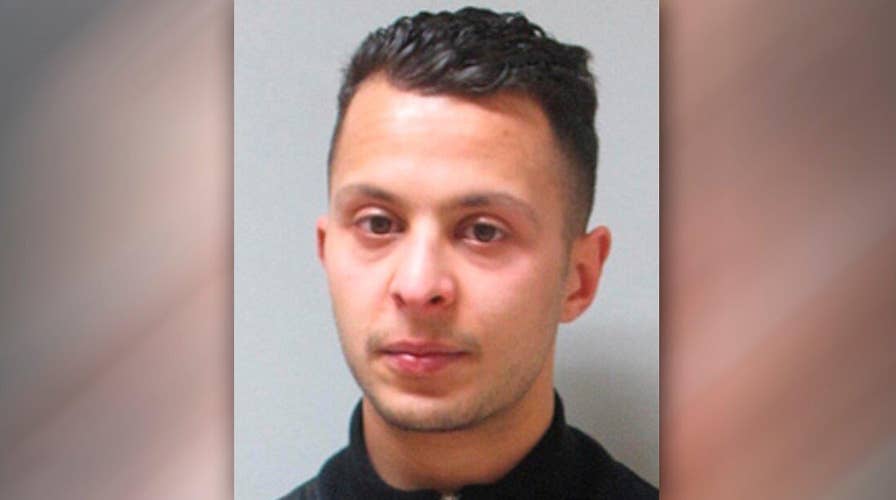Lawyer: Terror suspect 'falling apart,' ready to cooperate
Key suspect in Paris attack transferred from Brussels, reportedly ready to talk
Salah Abdeslam, the Paris massacre suspect who went on the run in Europe for months, is a "little jerk" who's "falling apart" and ready to cooperate, his lawyers said as he was officially transferred from Belgium to France Wednesday.
"He has the intelligence of an empty ashtray," Abdeslam's Belgian lawyer Sven Mary told the French newspaper Liberation. He dismissed his client's influence on terrorists, calling Abdeslam "more a follower than a leader."
The suspect's lawyer in France, Frank Berton, told iTele TV his client wants to talk, "he has things to say, that he wants to explain his route to radicalization" as well as his role in the attacks -- but not take responsibility for others.
"That means be judged for facts and acts that he committed but not for what he did not commit simply because he is the only survivor of the attacks," Berton said.
Prosecutors filed preliminary charges of terrorist murders and possession and use of bombs and weapons against Abdeslam. They said he was instrumental in coordinating logistics for the Nov. 13 attacks that killed 130 people at Paris night clubs, a noted music hall and the sports stadium outside the city. The Islamic State terror group claimed responsibility for the carnage.
Police arrested Abdeslam in Belgium last month after he spent four months on the run.
The quick, secret transfer to France surprised even Berton, who rushed from Lille to join his client at the Palace of Justice, arriving in the early afternoon.
Testimony from Abdeslam, a 26-year-old Frenchman of Moroccan origin, will likely prove significant to definitively linking events of that night, which involved three teams of attackers who blew themselves up or sprayed gunfire. His brother was one of the suicide bombers.
Abdeslam's precise role in the attacks remains a mystery. He returned from France to Belgium afterward, calling cohorts in Brussels to fetch him. However, a suicide belt bearing his fingerprints was found south of Paris and a car he had been driving was found in a northern Paris district, prosecutors said.
He was captured just four days before March 22 bombings at the Brussels airport and a metro station that killed 32 people. ISIS also claimed responsibility for those attacks.
Brussels, and in particular the Molenbeek neighborhood with a large Muslim population, was home to many of the attackers who struck Paris. It was Abdeslam's childhood neighborhood and he was finally caught not far from the home where he grew up.
Speculation about Abdeslam's role and place in the hierarchy of the attackers has been rampant. Was he a little guy and a coward or a pivotal figure in the planning and execution of the attacks?
It had been widely suspected that Abdeslam pulled out of his own role as an attacker, something Paris prosecutor Francois Molins confirmed at a news conference, saying he had wanted to blow himself up at the sports stadium but backed down.
Abdeslam is also charged with attempted murder over a March 15 shootout with police in Brussels. He was arrested three days later and police in Belgium have questioned him about any potential links to the suicide bombers in the Brussels attacks.
French Justice Minister Jean-Jacques Urvoas said Abdeslam would be placed in isolation in a prison in the Paris region, watched by guards specially trained to deal with "people reputed to be dangerous." He did not name the prison where Abdeslam would be housed.
Berton, who has taken on tough cases in the past, said in the iTele interview that Abdeslam "has the right to be defended."
"We're in a democracy ... we're not in a totalitarian state," Berton said.
Former chief terror magistrate Jean-Louis Bruguiere said that while Abdeslam's arrival in France is important, the investigation is far from over.
"What is important is not just his declarations," Bruguiere said on iTele, "but to be confronted with concrete elements of the probe, a very thick file."
The Associated Press contributed to this report.

